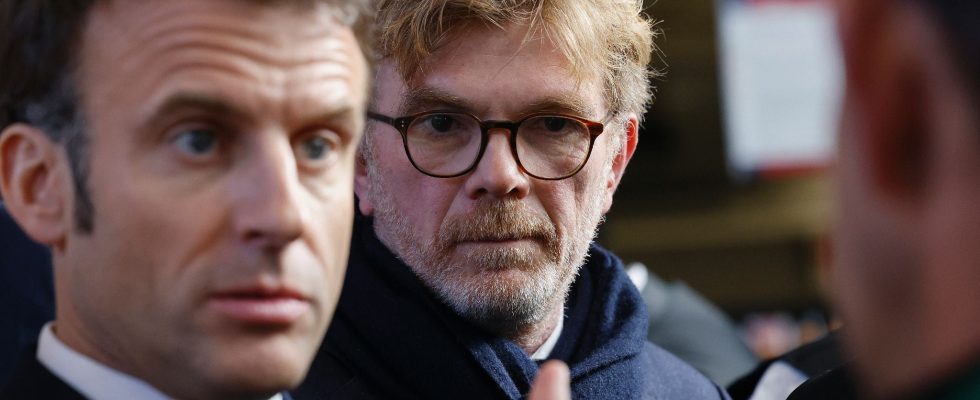After a retreat at the beginning of February, is the farmers’ movement preparing to rise from its ashes? Possible, if we are to believe recent statements by the president of the FNSEA. “It is not because people have returned to the farms that the subject is over,” warned Arnaud Rousseau this morning at the microphone of Europe 1. A warning launched for the first time last Tuesday on TF1: farmers are “ready to take action again” if the responses are “not up to expectations, which are very high”.
Also possible, if we look towards the Hautes-Pyrénées, where several demonstrators blocked access to a supermarket in Ibos during the night from Sunday to Monday. In Bouches-du-Rhône also, some have decided to walk their talk. At dawn this Monday, around fifty tractors began to converge towards Marseille with the aim of reaching the prefecture.
“Three weeks ago, when the various ministers asked us to sit down at the negotiating table to make proposals for concrete measures, we accepted. Today, there is nothing moving forward, in any case not at the right pace”, annoys Romain Blanchard, president of the FDSEA of Bouches-du-Rhône and farmer in Puyricard, at the microphone of RMC.
Remuneration, pesticides, free trade agreements…
Thus, if the measures announced by the Prime Minister at the beginning of February largely contributed to curbing the mobilization, they could nevertheless prove insufficient to prevent its resurgence. And for good reason, everywhere in France, farmers are still waiting for new arbitrations. On peasant income, in particular but also standards on the use of pesticides or even free trade agreements. So many demands which encourage the sector not to release pressure on the executive.
Even more so on the eve of the annual Agricultural Show, which will be inaugurated on Saturday February 24 by the President of the Republic as is tradition. A real balancing act for Emmanuel Macron who will have to confront for the seventh consecutive year the anger of a profession at the end of his rope, and whose expectations after the mobilization at the start of the year are high. The president of the FNSEA Arnaud Rousseau is due to meet with the head of state on Tuesday afternoon.
The main union wants to see the first results of the measures announced and awaits the lifting of what it considers to be obstacles to production (ban on pesticides, unfair competition, overabundance of standards and paperwork, etc.)
Operation to boycott the Agricultural Show
The Minister of Agriculture is also expected at Porte de Versailles. Exercise that he does not intend to dodge, despite the risk of excesses. “I am not necessarily saying that the Show will take place in conditions of serenity,” admitted Marc Fesneau on France Inter this Sunday. “When we are a public official, we must also agree to confront what are sometimes quarrels and people who come to remind us of promises or remind us of demands.”
In fact, the organizers of the show fear the irruption of demonstrators. Security will be brought “to the maximum”, indicated Arnaud Lemoine, director of Ceneca, the organization which owns the event, Thursday on BFMTV. “Obviously, it’s the farmers’ show, obviously we understand the demands […] and demonstrations. But the demonstrations, [c’est] not in the living room”, he pleaded. “The living room must remain a beautiful celebration despite everything”, he insisted, stressing that “it is also the living room of grandmothers, strollers, families . And so we must welcome them properly, normally.”
This year, however, the government does not expect a record crowd. Faced with this context of tension, some farmers have in fact decided to boycott the Agricultural Show, by organizing a counter-agricultural show, called “Salon à la ferme”. An idea from the Peasant Confederation, which will allow farmers to open the doors of their farm to the public from February 15 to 25.
“Visitors don’t go to the show, but to the farm, it’s another way of meeting the public and the agricultural world. We want to break away from the showcase in Paris”, explained to our colleagues from France 3 regions, Laurence Lyonnais-Meslob, spokesperson for the Confédération paysanne du Doubs et du Territoire de Belfort, who assures us: the French “want to understand the world of agriculture”.
